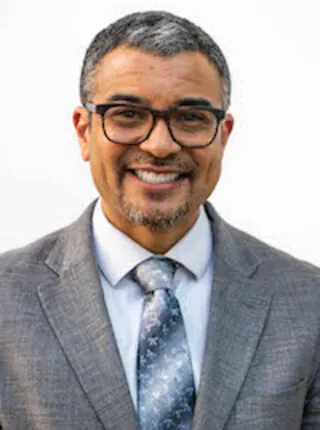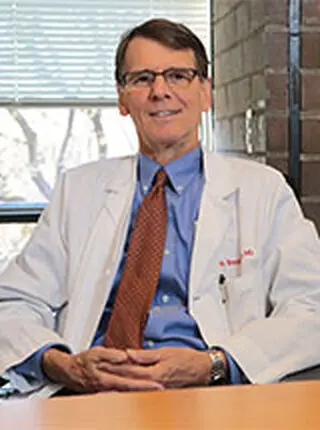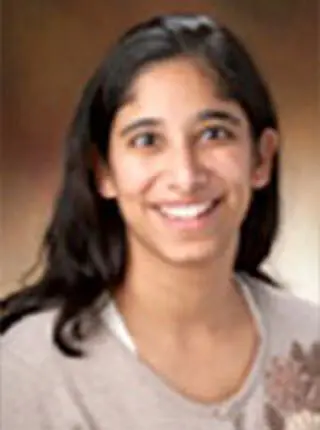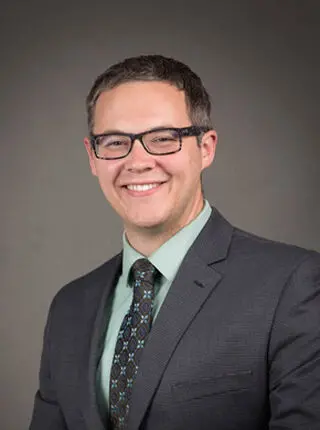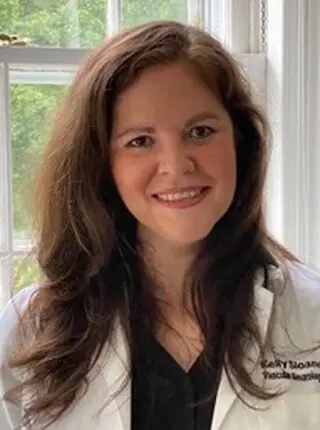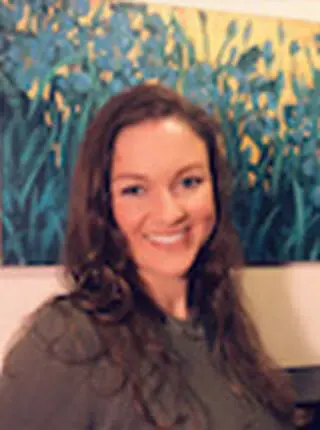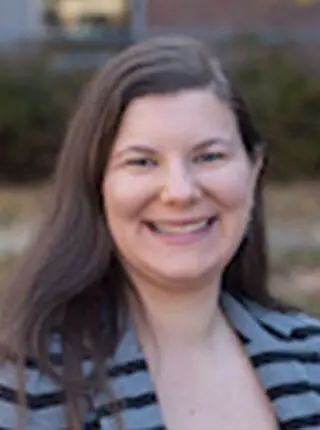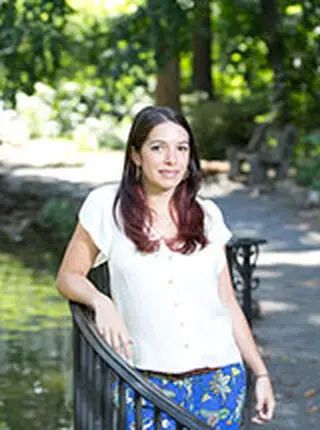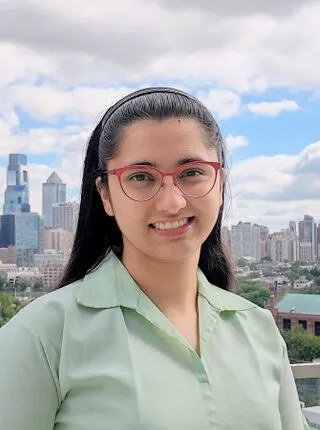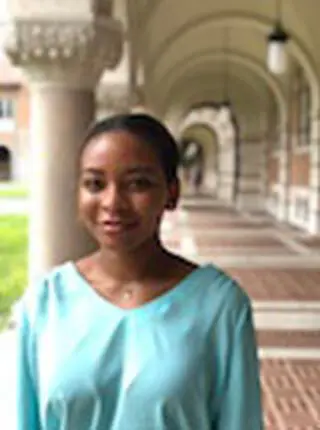People
Investigators
-
Read More about Roy H. Hamilton MD, MS
Roy H. Hamilton MD, MS
Director of Center for Brain Science, Translation, Innovation, & Modulation, Director of Laboratory for Cognition & Neural Stimulation, Professor of Neurology, Psychiatry, and Physical Medicine & Rehabilitation.
Publications
Roy H. Hamilton MD, MS
Director of Center for Brain Science, Translation, Innovation, & Modulation, Director of Laboratory for Cognition & Neural Stimulation, Professor of Neurology, Psychiatry, and Physical Medicine & Rehabilitation.
Publications
Dr. Roy Hamilton is a Professor in the departments of Neurology, Physical Medicine and Rehabilitation, and Psychiatry at the University of Pennsylvania, where he also directs the Laboratory for Cognition and Neural Stimulation (LCNS). He has been engaged in research in the field of brain stimulation since 1998, and has employed TMS and tDCS in a range of studies exploring a range of topics, including but not limited to cognitive control, visuospatial processing, language production, semantic memory, and creativity. He is a clinically trained behavioral neurologist and cognitive neuroscientist, and as such has dedicated his career to exploring the structure-function and network-function relationships that underpin complex human behaviors. Dr. Hamilton’s work has been supported by a variety of funding agencies, including the NIH, Robert Wood Johnson Foundation, American Academy of Neurology, Society for Neuroscience, Association for Frontotemporal Dementia, and Templeton Foundation. Dr. Hamilton also serves as Director of the Penn Clinical Neurosciences Training Program. He is the recipient of numerous accolades, including the American Academy of Neurology's Norman Geschwind Award for behavioral neurology research and Penn's Leonard Berwick Award for excellence in basic science and clinical education.
-
Read More about H. Branch Coslett, MD
H. Branch Coslett, MD
CO-Primary Investigator LCNS, Professor of Neurology, Department of Neurology
Publications
H. Branch Coslett, MD
CO-Primary Investigator LCNS, Professor of Neurology, Department of Neurology
Publications
Dr. Coslett the William N. Kelley Professor of Neurology at the University of Pennsylvania and a Research Neurologist with the Moss Rehabilitation Hospital. He received his MD from the University of Pennsylvania School of Medicine in 1977, completed residency in Neurology at the University of Virginia in 1981, and a fellowship in Behavioral Neurology at the University of Florida in 1983. Dr. Coslett's research interest is in the area of Behavioral/Cognitive Neurology, and more specifically in understanding the architecture and neural bases for human cognition through the study of human spatial cognition, reading, semantic memory, functional imaging and transcranial magnetic stimulation.
Download Curriculum Vitae
-
Read More about Sudha K. Kessler, MD, MSCE
Sudha K. Kessler, MD, MSCE
CO-Primary Investigator LCNS, Associate Professor of Neurology and Pediatrics, Department of Neurology, Children's Hospital of Philadelphia
Publications
Sudha K. Kessler, MD, MSCE
CO-Primary Investigator LCNS, Associate Professor of Neurology and Pediatrics, Department of Neurology, Children's Hospital of Philadelphia
Publications
Dr. Kessler is an Assistant Professor of Neurology Perelman School of Medicine at the University of Pennsylvania. She is board-certified in Neurology, Pediatrics and Child Neurology. She completed her medical training at The Baylor College of Medicine, a Neurology Residency at The Children's Hospital of Philadelphia and the Hospital of the University of Pennsylvania, a Pediatric Residency at Lucille Packard Children's Hospital at Stanford University and Clinical Fellowship training in Epilepsy & EEG at Columbia University. Dr. Kessler is interested in the epileptic mechanisms of the human brain, specifically in children and the effect that transcranial magnetic stimulation has on those neural processes.
-
Read More about John D. Medaglia, PhD
John D. Medaglia, PhD
CO-Primary Investigator LCNS, Associate Professor of Psychology, Drexel University, Adjunct Assistant Professor of Neurology, Perelman School of Medicine, University of Pennsylvania
Publications
John D. Medaglia, PhD
CO-Primary Investigator LCNS, Associate Professor of Psychology, Drexel University, Adjunct Assistant Professor of Neurology, Perelman School of Medicine, University of Pennsylvania
Publications
Dr. Medaglia is a Assistant Professor in the Department of Psychology at Drexel University and Adjunct Assistant Professor of Neurology at the Perelman School of Medicine at the University of Pennsylvania. He graduated from the Pennsylvania State University in 2014, where he studied the effects of traumatic brain injury on cognition and network reconfigurations. He completed his doctoral internship at the Medical University of South Carolina and joined a T32 postdoctoral training program at Moss Rehabiliation Research Institute with mentors Danielle Bassett, Sharon Thompson-Schill, and Roy Hamilton to receive training in network science, cognitive control function, and brain stimulation. Dr. Medaglia is interested in network reconfigurations underlying the maintenance and transitions among cognitive functions, especially in the context of cognitive control. In particular, a major focus of his research is the use of network techniques to inform practical personalized approaches to leverage brain stimulation in experimental and clinical paradigms.
-
Read More about Kelly Sloane, MD
Kelly Sloane, MD
CO-Primary Investigator LCNS, Assistant Professor of Neurology, Division of Stroke and Cerebrovascular Diseases, Department of Neurology
Publications
Kelly Sloane, MD
CO-Primary Investigator LCNS, Assistant Professor of Neurology, Division of Stroke and Cerebrovascular Diseases, Department of Neurology
Publications
Dr. Kelly Sloane received her B.A. in Classics at University of Pennsylvania. She received her M.D. from Johns Hopkins School of Medicine and went on to complete her residency in Neurology at Johns Hopkins Hospital. After residency, she earned fellowships in Vascular Neurology at Massachusetts General Hospital/Brigham and Women’s Hospital as well as Neurorecovery at Mass General/Spaulding Rehabilitation Hospital.
Dr. Sloane’s clinical and research interests focus on recovery of cognitive function after stroke as well as healthcare technology. She has led studies on motor-cognitive recovery after stroke and technology-based cognitive assessment tools, and she is the author of numerous peer-reviewed publications of her research.
-
Read More about Denise Y. Harvey
Denise Y. Harvey
CO-Primary Investigator LCNS, Research Assistant Professor, Department of Neurology
Publications
Denise Y. Harvey
CO-Primary Investigator LCNS, Research Assistant Professor, Department of Neurology
Publications
Denise is a Research Assistant Professor at the University of Pennsylvania. A graduate of Rice university with a PhD in Cognitive Neuroscience, her research focuses on how language is organized, and the neuroplastic mechanisms that enable the reorganization of language function following neural injury. Utilizing a variety of methodological approaches to investigate the neural substrates of language, including neuromodulation (i.e., TMS and tDCS), voxel-based lesion symptom mapping (VLSM), diffusion tensor imaging (DTI), and task-based and resting-state fMRI, Denise's work aims to elucidate the mechanisms underlying the retrieval of concepts and words for language. Her research program is geared towards providing a framework to understand varying clinical presentations of aphasia, and in turn inform the efficacy of both behavioral and neuromodulation treatment protocols.
-
Read More about Catherine Norise, MD, MTR
Catherine Norise, MD, MTR
CO-Primary Investigator LCNS, Assistant Professor of Neurology, Department of Neurology
Publications
Catherine Norise, MD, MTR
CO-Primary Investigator LCNS, Assistant Professor of Neurology, Department of Neurology
Publications
Dr. Catherine Norise received her bachelor’s degree in biology with a minor in Japanese from Haverford College in 2011. She received her medical degree and master’s of science in translational research (MTR) from the University of Pennsylvania. She completed a Neurology residency at the University of Massachusetts. After residency, she completed a cognitive clinical fellowship at the Penn Memory Center.
Her clinical and research interests focus on neurodegenerative disorder of language and the therapeutic potential of neuromodulation in language disorders. She has been active in this field of neuromodulation research many years, and has authored numerous peer-reviewed publications in areas of neuromodulation and neurodegenerative disorders.
-
Read More about Jeremy Charles, MD
Jeremy Charles, MD
CO-Primary Investigator LCNS, Assistant Professor in Academic Clinician Pathway, Department of Physical Medicine and Rehabilitation
Publications
Jeremy Charles, MD
CO-Primary Investigator LCNS, Assistant Professor in Academic Clinician Pathway, Department of Physical Medicine and Rehabilitation
Publications
Dr. Charles is an Associate Professor in the Academic Clinician Pathway in the Department of Physical Medicine and Rehabilitation. Dr. Charles is board certified in Physical Medicine and Rehabilitation and subspecialty board certified in Brain Injury Medicine. He serves as the Director of Brain Injury Services for the Department of PM&R and is the Medical Director of the Penn Medicine Rehabilitation Inpatient Rehabilitation Facility Brain Injury Recovery Unit. He is interested in collaborating with other experts on investigating how Neuromodulation interventions can help towards enhancing neuro-recovery after CVAs as well as non-traumatic and traumatic brain injuries.
Director
-
Read More about Olufunsho K. Faseyitan
Olufunsho K. Faseyitan
Managing Executive Director
Olufunsho K. Faseyitan
Managing Executive Director
Olu is senior researcher and research operations project manager for the LCNS'. He provides technical support for TMS and tDCS projects in the lab. He is also responsible for data collection and data analysis of functional neuroimaging studies in the lab. Olu received a Bachelor of Arts from Purdue University and a Masters of Science from Villanova. His research interests are in the cognitive processes that support attention, language, and memory. Olu is particularly interested in the use of neural stimulation techniques (i.e. TMS & tDCS) and neuroimaging techniques (i.e. fMRI & VLSM) to investigate the neural correlates of language, attention, and spatial cognition in both health young adults and patient population.
Research Associates and Post Doctoral Fellows
-
Read More about Elisabetta Ambron
Elisabetta Ambron
Elisabetta Ambron
Elisabetta is a Research Associate in Neurology at the University of Pennsylvania. She received her PhD in Cognitive Neuroscience and Experimental Psychology from the University of Edinburgh. She is broadly interested in apraxia, attention, executive function, and motor control. At the LCNS, Elizabetta’s current research involves using non-invasive brain stimulation techniques (i.e., TMS- transcranial magnetic stimulation) to investigate body representation and motor function in stroke patients.
-
Read More about Amy Lebkuecher
Amy Lebkuecher
Amy Lebkuecher
Dr. Amy Lebkuecher is a post-doctoral research fellow at the LCNS and Moss Rehabilitation Research Institute through the NIH T32 fellowship program in translational neuroscience and neurorehabilitation research. Amy received her PhD in Psychology and Language Science from The Pennsylvania State University. Her research investigates the relationship between language and nonlinguistic cognitive abilities such as action planning and attention. Amy’s research at the LCNS investigates conflict monitoring in language and action production in individuals with apraxia and aphasia following left-hemisphere stroke.
Research Staff
-
Read More about Daniela Sacchetti
Daniela Sacchetti
Regulatory, Compliance, and Clinical Trials Manager
Daniela Sacchetti
Regulatory, Compliance, and Clinical Trials Manager
Daniela earned a Master’s degree in Experimental Psychology at Seton Hall University and a Bachelor’s degree in Psychology at Rider University. Her graduate school training focused on behavioral neuroscience and her thesis work addressed the anatomical and behavioral correlates of spatial neglect, a post-stroke disorder which effects attention. Daniela’s research interests include neurorehabilitation and neurodegenerative disorders of aging; she is also interested in executive functions specifically attention and processing speed. At the LCNS, Daniela is responsible for the regulatory documentation and correspondence for all study protocols under the direction of Dr. Hamilton. She is also involved in studies which explore the use of tDCS and TMS in patients suffering from Aphasia.
-
Read More about Leslie Vnenchak, MA, CCC-SLP
Leslie Vnenchak, MA, CCC-SLP
Speech Language Pathologist, Chief of Clinical Research Operations
Leslie Vnenchak, MA, CCC-SLP
Speech Language Pathologist, Chief of Clinical Research Operations
Leslie earned her bachelor's degree in Communication Disorders at Penn State University followed by her Master's degree in Speech Language Pathology at The College of New Jersey. She joined the University of Pennsylvania Health System in 2006. She has extensive experience as a therapist working with patients with post-stroke aphasia and has is highly experienced in the administration of therapies relevant to ongoing patient-related projects in the LCNS.
-
Read More about Jeffry Alfaro
Jeffry Alfaro
Jeffry Alfaro
Jeffry graduated with honors from the University of Pennsylvania, receiving a Bachelor of Arts in Neuroscience and a minor in Chemistry. At the LCNS, his research focuses using transcranial direct current stimulation (tDCS) paired with speech language therapy to treat patients with primary progressive aphasia (PPA). His previous research investigated subphonemic error patterns of patients with different PPA variants. Outside of his research interests, Jeffry is dedicated to spreading awareness about aphasia, stroke risk, and post-stroke care to neighboring communities.
-
Read More about Megan Hoffman
Megan Hoffman
Megan Hoffman
Megan graduated from Northeastern University with a Bachelor of Science in Behavioral Neuroscience and a minor in Criminal Justice. Her previous work includes research on transcranial alternating current stimulation as a treatment for patients with Alzheimer’s disease and behavioral variant frontotemporal dementia. At the LCNS, Megan is responsible for starting up a new multisite trial investigating transcranial direct current stimulation and language therapy for individuals diagnosed with primary progressive aphasia. She is interested in the role of neuroscience in the law and criminology and plans on attending law school.
-
Read More about Joseph Sheridan
Joseph Sheridan
Joseph Sheridan
Joseph graduated with a Bachelor of Arts in Communications from Temple University as well as a Master of Science in Speech Language Pathology from LaSalle University. His training as a Speech Language Pathologist has provided him with a growing knowledge and interest in language and cognition, both impaired and unimpaired. Joseph’s research interests include recovery of language abilities post stroke. At the LCNS, he is involved in projects investigating the clinical use of transcranial magnetic stimulation (TMS) and transcranial direct current stimulation (tDCS) in the rehabilitation of language and cognition function following stroke and neurodegenerative disease.
-
Read More about Harris Drachman
Harris Drachman
Harris Drachman
Harris graduated with a Bachelor of Arts in psychology at Rutgers University-New Brunswick and a Master of Science in psychology at Villanova University. His graduate school training focused on cognition and cognitive neuroscience, and he conducted his thesis on the ability to inhibit distractions in a visual scene using information stored in working memory. Harris's research interests include neurorehabilitation and recovery of cognitive impairments following brain injury or illness. His previous work involved research on the recovery from and chronic effects of traumatic brain injury (TBI). At the LCNS, he is involved in projects investigating the clinical use of transcranial magnetic stimulation (TMS) and transcranial direct current stimulation (tDCS) in the rehabilitation of language and cognition function following stroke and neurodegenerative disease.
Graduate and Medical Student Researchers
-
Read More about Shreya Parchure
Shreya Parchure
Shreya Parchure
Shreya Parchure is an MD-PhD Candidate in the Perelman School of Medicine and Dept. of Bioengineering in the School of Engineering and Applied Sciences (SEAS), through the NIH T32 program in Neuroengineering and Medicine. She previously completed MSE and BSE in Bioengineering from the University of Pennsylvania and received the Goldwater Scholarship. Shreya's thesis research at the LCNS focuses on neuroimaging-informed brain stimulation to understand the brain network basis of speech and its impairment in post-stroke aphasia. Shreya combines structural MRI neuroimaging, cognitive network neuroscience, machine learning, and non-invasive neuromodulation method TMS in her research, towards advancing aphasia recovery.
-
Read More about Taylor Phillips
Taylor Phillips
Taylor Phillips
Taylor graduated from Rice University with a Bachelor of Arts in Psychology with a minor in Neuroscience. At the LCNS, she investigates the use of transcranial direct stimulation (tDCS) and language therapy for individuals diagnosed with Primary Progressive Aphasia. Her current interests lie in exploring the neural correlates of language as well as the impact of environmental factors on disease.
-
Read More about Sebleh Alfa
Sebleh Alfa
Sebleh Alfa
Sebleh graduated from the University of Pennsylvania with a Bachelors of Arts in Psychology. Her previous research project under the mentorship of Dr. Emma Rhodes investigated cognitive and motor reserve in ALS. Her current project under Dr. Hamilton examines the use of tDCS in conjunction with speech language therapy to treat patients with primary progressive aphasia. Her current interests surround the neural correlates of language, neurorehabilitation, as well as risk and protective factors in brain aging.
Alumni
- Kayla Alznauer
- Elizabetta Ambron, PhD
- Jacques Beauvais MD
- Jennifer Benson, PhD
- Tifani Biro, PhD
- Samuel Cason
- Menvekeh Daramay
- Laura DeLoretta
- Danial Drebing
- Haley Dresang, PhD
- Leah Friedman
- Gabriella Garcia
- Felix Gervits
- Jay Gill
- Cindy Gooch, PhD
- Christopher Haslam
- Dasha Kliot
- Eric McConathey
- Jared Medina, PhD
- Benjamin Murdoch
- Nicole Nissim, PhD
- Catherine Norise
- Dung (Zung) Phan
- Jullian Purcell
- Dorian Pustina, PhD
- Linda Sanders, MD
- Vanja Saric
- Suravi Sarkar
- Jill Sorcher
- Priyanka P. Shah, PhD
- Peter Turkeltaub, MD, PhD
- Peter Twig
- Yuchao Wang
- Quan Wan
- Elaine Wencil, PhD
- Nicole White
- Martin Wiener, PhD
- Rachel Wurzman, PhD
- Jared Zimmerman




